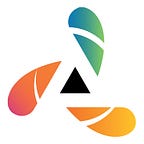Ford-WV Multi-Sector Partnership in Kaddumurivu: A Simple, Replicable and Innovative Solution to Increase Water Coverage
Background
Currently, safe water coverage in Sri Lanka — defined as the proportion of the population having access to water supplies from piped water systems, protected wells or rainwater systems — is approximately at 92 percent (JMP 2017). However, this number is disproportionately lower in rural areas, which is why World Vision Lanka (WVL), which has consistently listed WASH as a key area, focuses on providing water coverage to rural areas.
An example of this focus is the recent multi-sector partnership between WVL, Ford Motor Company, the Sri Lankan local and central government, the National Water Supply and Drainage Board and local universities of Sri Lanka. This partnership worked to provide safe drinking water to the eastern rural village of Kattumirvu. According to WVL’s assessment, before the project started water coverage in this village was only at about 30 percent, and community members had to walk an average of 3–5 kilometers to the nearest safe drinking water source because previously installed water sources contained non-drinkable water.
About the Stakeholders
Each of the stakeholders brought in unique resources and contributions to the project.
WVL, with more than 10 years of experience in tackling WASH issues in Sri Lanka, managed the entire project. WVL provided its technical and operational expertise to ensure a smooth-going process. Some responsibilities included community mobilization, training the local government health inspectors on how to monitor water correctly and helping conduct an assessment on the users ability to afford water (or how much residents can pay for water) to help the local government come up with a reasonable and affordable tariff.
Ford Motor Company and its local distribution partner, Future Automobiles (Pvt) Limited, provided volunteers and funding under Fords Conversation and Environmental Grants programme.
The National Water Supply and Drainage Board provided support and technical monitoring to ensure compliance with national standards.
The local universities helped conduct a preliminary assessment of the area to gauge the situation and helped devise available WASH options to implement in the village.
The government facilitated the process of land approval, mobilized local resources, and resolved conflicts between communities. The Ministry of Health commissioned water quality monitoring tests before the project and periodically checked-in.
At the local level, the Divisional Secretariat was directly responsible for implementing water monitoring in accordance to the Ministry of Health guidelines. They deployed and still have a health inspector monitor the quality of water in the community. As well, they helped with the construction process of the project.
Impact
The one-year project resulted in the installation of a rainwater-harvesting tank, a water well, an overhead storage tank to blend groundwater with rainwater, installation of pumps to pump water up to the storage tank and a pipe network connected to five distribution tanks strategically located throughout the village.
As a result of this multi-sector partnership, water coverage for the 223 families in Kattumurivu village increased from 30 percent to 90 percent. Moreover, the average distance for families to collect potable water reduced from 3–5 kilometers to 100–200 meters, making life easier for women and children who are often responsible for fetching water for household use. Water from old sources such as hand-dug wells, which was not drinkable, did not go to waste and is now used for bathing purposes.
Perhaps most importantly, the defining success in this project is that through on-the-ground and frontline assessments, project stakeholders were able to come up with an effective, sustainable and replicable solution to increase water coverage in rural areas through using simple technology to combine rainwater with groundwater. Through this experience, WVL now can easily repeat this process in other rural projects to help Sri Lanka reach its universal water coverage goal by 2025!
Recently (Aug 2018), Ford Motor Company and the local distribution partner awarded US$10,000 to WVL to provide sustainable safe water sources for residents in Uchchamunai islands. This represents the third project that Ford Motor Company and WVL have partnered on this year.
